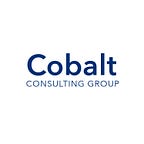How Biotechnology is making Food Manufacturing Safer for Consumers
Developments in life-sciences are increasingly contributing to creating a food production industry that is less prone to wide-spread pathogen outbreaks among consumer communities.
Written by Alex Kernagis, Ronak Mahatme and Nina Tedeschi
For years, the FDA has enforced environmental monitoring protocols for food manufacturers in order to prevent the spread of pathogens not only within facilities, but also within grocery stores and communities where produce is sold. Within these environmental monitoring programs, companies will swab areas of their facilities and send samples to a third-party lab or conduct in-house testing to determine the presence of different pathogens. Ultimately, the FDA leaves the legal decision to conduct environmental monitoring up to each manufacturer’s discretion, as there are firms that are exempt from these programs. One common exception appears to be beverage manufacturers, as many of them involve a “kill-step” before their products are processed and shipped. However, for most food manufacturers, especially for those that handle dairy products, these standards and procedures are a necessary part of conducting operations.
An interesting development has been the effect of the COVID-19 pandemic on environmental monitoring programs. The pandemic has certainly forced the FDA to place increased scrutiny on the safety and sanitary protocols of the food processing industry — creating more rigorous and common inspections. This rigor of protocol is ultimately a positive for consumers, as their potential exposure to pathogens from food products is actively being decreased. However, it has yet to be seen if this is a permanent shift in paradigm within the industry or simply a temporary effect of the global pandemic.
In cases where monitoring standards aren’t being met, we begin to see rises in recall scenarios — in which a food manufacturer discovers that shipped products have possibly been contaminated with a pathogen, and promptly orders recalls among those products. Often, these recalls happen too late, and it is only after many infections and/or deaths that the product is hastily recalled. Most recalls, especially for small and mid-size food manufacturers, end with significant fines and bankruptcy due to significant fines and foregone revenues from brand reputation damage. In cases where management had known about the presence of pathogens and not acted responsibly accordingly, jail time is a serious and common outcome.
So what are the most efficient paths for food manufacturers to avoid the possibility of recalls? Most companies outsource pathogen testing to third-party labs, but in-house testing is increasingly becoming more common due to great strides in technology developments. The most ambitious estimates place the market for food safety testing to grow 8% CAGR by 2025 — hopefully creating a valuation around $23.20 billion, as stated by Allied Market Research in November of 2020. Performing in-house testing is a significant investment for many companies because the fixed cost of acquiring devices is quite high. As companies are being given two extremely competitive options for monitoring, they are beginning to identify internal trade-offs between convenience, cost, speed, staffing and efficiency. Throughout the coming years, it will be fascinating to see how developments in technology will affect the market size of overall testing, as there is much crossover between the technologies used within third-party labs and in-house testing devices. The great news is that these developments will increasingly make food processing safer for all parties involved — helping to decrease the overall risk of pathogen infections for consumers. In theory, having quicker, safer and more efficient manufacturing procedures should help companies catch pathogen growth sooner rather than later; we just have to hope that responsible measures are being taken, internally, to use these technologies consistently and diligently.
